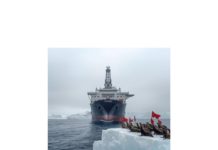MARKET PERSPECTIVE
By J Mulraj
NOV 15-22, 2025
Short term pain but long term gain
Image created using Freepik.com
William Shakespeare said this about men “The Evil That Men Do Lives on After Them, The Good is oft Interred With Their Bones”. This is equally true of asset bubbles. True, the bursting of an asset bubble causes a lot of immediate financial grief. That’s the price paid for the irrational exuberance of early investors. But the assets created during the bubble survive, being sold for 10-20% of their peak value, which makes it commercially viable.
One can cite two examples.
Perhaps an early example of a bubble in India was the company launched by Premchand Roychand in 1863, called the Backbay Reclamation Company. The objective was to reclaim 1500 acres from the sea. Of this: the plan was to hand over 300 acres to the Railways, Roads and Esplanade widening. The company took the fancy of Indian investors who pushed up the share price to ₹50000/share.
In 1865 the end of the American civil war led to a collapse of cotton prices, and so the the end of the liquidity tap for three Reclamation project. Only a sliver of land was reclaimed, and the project was handed over to the Railways. But the die was cast, and land Reclamation took place later, such as Nariman Point. So the original bubble, funded by profitable export of cotton to America, created a valuable asset.
The second example is the aftermath of the dot.com bubble. To cater to demand for transmission lines, several companies were set up, to lay undersea cables.
Global Crossing was bought by Level 3 Communication in an all stock deal valued at $3 b. And later by Lumen Technologies, a publicly owned company owned by BlackRock, Vanguard, and others.
Flag Telecom was sold in a distress sale, after going bankrupt, and was bought by Anil Ambani’s Reliance Communication for about $ 211 m.
The Tata group company VSNL (later Tata Communication) bought Tyco Global Network for $ 130 m. This was after Tyco wrote down the value of it’s network by $ 1.2 b. thus getting it for ten cents to the $. VSNL also bought Teleglobe, a voice/data wholesale provider.
In essence, the early investors who funded the Internet infrastructure in bouts of irrational exuberance, ended up broke but the assets built were later acquired at highly discounted prices making the businesses viable.
It looks as though the AI bubble may pop. There are lots of circular deals where, eg, Microsoft invests in Open AI (which is a capital transfer), and Open AI uses that money to buy cloud storage from Microsoft (a revenue transfer). The huge investments being made in Data Centres and in Power plants may not yield the desired returns on capital. But should it, indeed, pop, there would be a restructuring.
Meanwhile, the US added 119,000 jobs in September, despite which unemployment hit a 4year high. Given Trump’s immigration policy this will result in wage and price hikes.
Prices of grocery items have increase sharply, due to Trump’s farcical assumptions that the cost of high tariffs imposed by him (in a futile attempt to reduce the US debt burden), would be borne by the exporter and not the US consumer. Businesses do not have the type of margins to absorb the high ‘reciprocal’ tariffs; if they did, competition will spring up swiftly. The cost of the tariffs were obviously borne by US consumers in the form of higher shelf prices. It was only after Republican losses in recent elections, fought by Democrats on the criteria of affordability, that Trump had to sign an Executive order scrapping tariffs on several grocery items.
In deference to electoral will, Trump had to eat humble pie and reverse his stance on food tariffs. . Luckily it hadn’t been tariffed!
Trump seems to have included humble pie in his monthly menu. In April he announced a 90 day pause in reciprocal tariffs for most countries. This was likely done to stabilise stock markets.
In May he postponed a 50% tariff on EU imports.
A Trade Court decided, in Trump v/s V.O.S. Selections, that Trump did not have the authority, under IEEPA (International Emergency Economic Powers Act) to levy the Liberation Day reciprocal tariffs. In May 2025 the District Court of Columbia ruled, in Learning Resources v/s Trump, that the Reciprocal Tariffs were unconstitutional.
Last week the BSE Sensex ended at 85231, for a weekly gain of 669 points.
India is, unfortunately, surrounded by hostile neighbours; China, Pakistan and Bangladesh, after an engineered coup ousted a popular, elected, Prime Minister. So it has to spend huge amounts on acquiring, and manufacturing domestically, defence equipment. It plans on investing $9 b for equipment in all three services The global geopolitical waters remain muddiedThe global geopolitical waters remain muddied.().
The global geopolitical waters remain muddied. Sino-Japanese tensions have arisen. In response to Takaichi, the newly elected Japanese Prime Ministers remark that an attempt by China to take over China could trigger a conflict and if it’s ally, USA got involved, Japan would need to get involved as USA was its ally and Taiwan was 110 kms away. This triggered an undiplomatic comment by Chinese Consul General that the ‘dirty head that sticks itself in must be cut off’.
Given the financial, societal and geopolitical risks, investors should seek to lighten.
———————————-
Comments may be sent to: jmulraj@asiaconverge.com
———————————————
PLEASE NOTE : THIS COLUMN WONT APPEAR NEXT WEEK AS THE COLUMNIST IS TRAVELLING










































COMMENTS